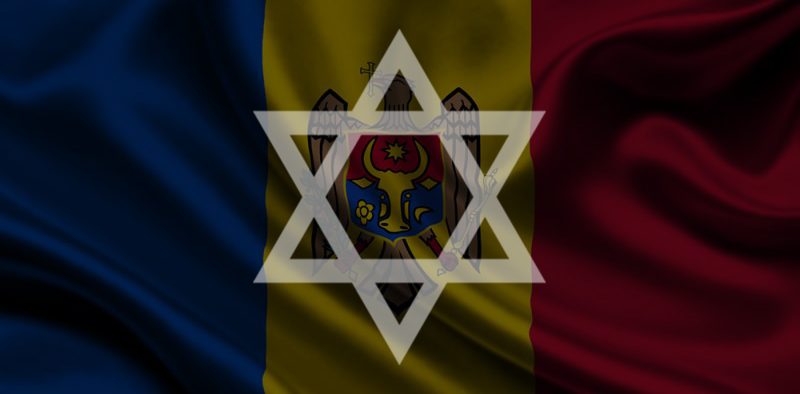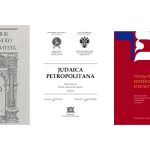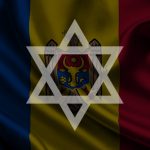Jewish ethnic autonomy: the case of contemporary Moldova
Поделиться

Euro-Asian Jewish (EAJ) Policy Papers, No 21 (May 2019)
In the 1990s–2000s, Moldova granted its Jews national-cultural autonomy. It happened as a result of the civil war in Moldavia in the late 1980s – early 1990s and pro-European policy of the moderate political wing that came to power by the mid-1990s. Jewish autonomy was shaped by special laws which formed system of that autonomy – the languages (Yiddish and Hebrew), schooling, and fulfilment of religious and cultural needs. Until now, Jews have enjoyed these advantages. The Jewish autonomy, as well as state support of Jewish scholarship and financial support to community projects from local entrepreneurs are the facts which proved the thesis on Jewish revival in Moldova in the 1990s‑2000s. We may conclude that the ultra-nationalist policy of the Right is the key obstacle to national autonomies, including the Jewish one.
The question I would like to pose is whether there was Jewish revival in Moldova in the 1990s ‑ 2000s. On the one hand, the Jewish population of Moldova dropped significantly – from 65,800 Jews, that live in Moldova according to the data of the last Soviet Census of 1989 (1.52% of all population) to 2,300 in 2015, acording to Mark Tolts research, based on the unpublished data of the latest Moldavian census. This decrease in population was a result of mass emigration from the country (including aliya), as well as population ageing in the country. Bearing this in mind, professor A. Polonsky writes about “custodians of the memory” of Moldavian Jews, but not about solidary Jewish community of Moldova
On the other hand, Western observers stated in 1994 that the Jewish community was “in the midst of a renaissance, even while emigration surges.” Since than they witnessed a Jewish cultural and religious life, as well as fostering Jewish scholarship in the country under the state support, etc. Moreover, the Moldavian authorities granted a national-cultural autonomy for Jews, which is the only case of such an autonomy among the post-Soviet states.
Three indicators of the national autonomy can be distinguished: firstly, a type of national autonomy protected by laws; secondly, advancement of segment culture and education, and, thirdly, Jewish population growth, or, better to say, in a contemporary post‑Soviet situation, ‑ strengthening national identity. As far as Jewish autonomyin Moldova is concerned, there were two key reasons for the creation of specific laws and principles defending national minorities. First and foremost, those were ethnic conflicts in the Soviet Moldavia in the late 1980s – early 1990s. The country broke up de factointo two ones – Moldova itself and Transnistria. One more part of the country – Gagauzia – finally got a special autonomous status. One more reason for the creation of special autonomy for national minorities of Moldova was the aspirations of the national elite for the country to be part of the integration process in Europe, for Europe as a political area called for implementation of legislation protecting the rightsof national minorities. Thus, making a step towards Europe, Chişinău was forced to protect the rights of minorities.
On the other hand, war weary society attempted to restore the balance of political forces. In 1992 the moderate view on the national question won, the authorities took special measures to defend national minorities. The laws protected the rights of the Jews, as well as other national minorities. Following the European law, the state declared the right to freely express, preserve and develop ethnic, cultural, linguistic or religious identity of all ethnic minorities. The presidential decree No.161 of 12 Aug 1991 called for a special government’s document to clarify those measures concerning the development of the Jewish culture in the republic. The decree led to the establishment of the Сhair of Jewish culture in the State University of Moldova, the opening of a secondary Jewish school in Chişinău and special Jewish classes all over the country. The decree also resulted in building an institution for elderly care (beyt-avot) in the capital city, as well as one-time grant to editors of the newspaper Undzer Kol (Нашголос). Chişinău Mayor Office needed to find a building for the Jewish cultural and economic center, national TV and radio company had to pay attention to broadcasting in the Jewish language. The Governmental decree No.682 of 9 December 1991 specified those measures stated in the Presidential decree. Moreover, Moldavian Society for Jewish culture was exempted from tax for five years in case of transferring 35 per cent of the Society’s income to its account.
In May 1992, following the necessity for implementation of the European legislation concerning national minorities the Government of Moldova reported the results of proportional representation for ethnic groups: 257 deputies were Moldavians, 49 members of Parliament were Russians, 32 ‑ Ukrainians, 10 ‑ Gagauzes and 8 ‑ Bulgarians of 356 all the deputies. In addition, in the Government there were 4 members from the Russian community, 3 of the Ukrainian one, and one Gagauze and one Jew. It is worth stressing that the principle of proportional representation of ethnic minorities in the Parliament was not stated in any law of Moldova. The legislature was meant to demonstrate Europe that the country had succeeded in protecting ethnic minorities.
After Communists came to power in 2001, this national policy was not changed. In December 2003, the Parliament adopted the Concept of Ethnic Policy. The law aims “to promote national unity” in order to “overcome” aftereffect of the civil war. The act supports Hebrew and Yiddish as languages of Jewish ethnic minority, as well as the preservation of the Russian language as an “instrument of inter‑ethnic communication” and the state language.
Having power in 2009-2016 the Right did not change the basics of the ethnic policy of its predecessors, but attempted to make some measures of the old policy of 1989-1990, for instance, oppression of the Russian-speaking population (including Jews), Holocaust distortion in historical narratives, etc. This step was perceived by the population as revision of moderate ethnic policy and the preservation of those traditions regarding the unification with Romania/
One more factor is an element of the state policy towards national minorities: it is Jewish scholarship in the country. Moldova is the only post-Soviet country where the authorities support Jewish academic institutions. It is worth mentioning that it was a state policy after the military clashes at the turn of the 1980s-1990s. As Victor Damian, a Moldavian historian, puts it: in February 1991, the idea to establish an academic department of Jewish studies arose, and the department itself was set up in July 1991. Similar ethnic studies departments appeared soon. Several Western observers paid attention to that before, pointing out the advantages of a favorable attitude towards Jews – a move to the European integration, or as misanthropic observers noted, a step to get foreign investments.
One important detail should be mentioned: nowhere on the post‑Soviet territories Jewish studies enjoys state support and is an element of the state national policy. It helped Moldavian authorities to create an atmosphere of tolerance cooling off the population after ethnic clashes of the early 1990s and stepping up towards the European community. Those steps are seen as appeasement gestures after the split of the country. Providing such a support the government seemed to have considered the views of the Jewish population (the only 0.11 per cent according to the census 2004 and now probably even less than 0.1 per cent), and not only Jews, but Gagauzes, Ukranians, etc.
Thus, the Moldavian authorities in the 1990s attempted to promote cultural and national autonomy for various ethnic minorities living in the country. This policy could have calmed down the Moldavian society after ethnic clashes in Transnistria, as well as boosted the country’s integration processes with the EU. The legislative measures shaped such autonomy in 1990-1992. The same situation can be observed in Russia. But in Russia national cultural autonomy is determined as a type of a civic organization (according to the Federal Law on national cultural autonomy dated 17 June 1996).
Educational, cultural and religious needsof the Jewish community are satisfied by various institutions. I could find out from various sources that from the very beginning of Jewish revival in Moldova in the late 1980s, there were two controversial views on arrangements of life in the Jewish community: religion should prevail over secular rules or the secular world should have an impact on educational and cultural institutions. Since both states, Moldova and Israel, participated in this decision, the secular tendencies triumphed
Despite a little amount of the Jewish population, both the state and the community are interested in fostering Jewish culture in the country. I have already paid attention to the cultural and religious life of the Jewish community of Moldova during the 1990s and 2000s. The special Governmental decree dated 26 May 1992 and cited above stated that in the mid-1994 in Moldova there was a kindergarten and a secondary school for Jews. The national TV and radio had one hour and a half of broadcasting in Yiddish out of 15 hours of everyday broadcasting.
The cited Governmental decree dated 26 May 1992 also mentioned a Jewish secondary school; it meant the school no.22 in Chişinău (now T. Herzl Technological Lyceum). It was founded on 10 October 1991 and supported by Lishkat ha-kesher. Afterwards, ORT was involved in the educational process in the Lyceum no.22.
In 1992, another Jewish secondary school was founded in Chişinău, it was Rambam Lyceum (school no.15). CHABAD supported this school, as well as ORT, which is involved in training programs of Rambam Lyceum. Furthermore, there are Jewish Sunday schools all over the country.
The Jewish press appeared in the 1990s ‑ 2000s. A Jewish Agency representative in Moldova regularly publishes the newspaper Oliva. From 1991 till 2004(?) the newspaper Nash golos(or Undzer Kol, according to the documents of the Moldavian Government cited above) was published. CHABAD had its own newspaper called Istoki zhizni(it was published till 2011). In 2003‑2012, Dor le-dor Foundation, non-profit and charitable Jewish institution founded in Chişinău in 2002 by several businessmen, published the paper Evrejskoe mestechko.All the newspapers were closed because of lack of finance.
In Moldova books in Yiddish were also published occasionally. In the 2000s, collections of writings by Bessarabia-born Yiddish writer Yekhiel Shraibman,were issued in Chişinău. In Chişinău, in February 1991, the Jewish Public Library was set up. Itzik Manger Jewish Municipal Library is the only one of the Jewish libraries on the post-Soviet territory supported by the state. In 2005, the community opened a Jewish Museum in Chişinău.
There are synagogues and prayer houses (batey-midrashim) across the country. Chişinău has three synagogues ‑ one of CHABAD,one of Agudat Yisrael, and one more belongs to the community “Khofetz Hayim”, a religious one, established by local businessmen of the city in 2012. Thus, the development of educational, cultural and religious institutions satisfies the needs of Moldavian Jews.
Whereas Jewish populationdecreased due to ageing, mortality, emigration (all of them, labor and economic emigration, as well as aliya), it is hard to say that in Moldova there is Jewish autonomy (and revival as well). It is one of the rigid obstacles to Jewish revival. However, I could object that the decline of Jewish population is a common trend for the FSU countries. In 2010, for example, the “core” Jewish population (those who are covered by the Law of Return) in Moldova was 4,100 people. It is more than the “core” Jewish population in Kazakhstan, Georgia, Lithuania, and Estonia, but less than in Uzbekistan, Latvia, Azerbaijan, Belarus, the Ukraine, and Russia. Moreover, it is more than amount of Jewish population according to the 2004 Moldavian Census, that is 3,600 people. In addition, the country’s population had dropped at all: from 3,383,332 in 2004 to 2,913,281 in 2014. Hence, the decrease in the Jewish population in Moldova is unlikely to be considered as a factor which impedes the Jewish revival.
As far as strengthening national identityis concerned, the development of Jewish life in Moldova since the late 1980s created a powerful impact upon shaping Jewish consciousness. Earlier, I wrote about the effect of CHABAD on the revival of Jewish life in Moldova (Sheveliov 2014: 62). There is one more factor which influences a Jewish revival in general and identity preservation in particular. It is support of the community projects provided by successful Jewish businessmen, as well as local entrepreneurs.
Big business since the early 2000s supported the Jewish community in the country. Two businessmen – Alexander Pinchevsky and Alexander Bilinkis ‑ set up the Jewish Congress of Moldova in 2003. Other businessmen and entrepreneurs also joined to back the community. In 2002, Dor le-dorFoundation was established (it has been mentioned above). Moreover, local entrepreneurs take part in the community life. My opinion is based on personal observations during the expedition to Belz and Soroca in 2012. I referred to them earlier. In Soroca we met two entrepreneurs who have a small shoe shop; they contributed to the restoration of the local synagogue / community house, and they head the Jewish community in the town. I should pay special attention to this fact: the contribution of local small business to Jewish communal life is a unique thing. In the Ukraine, on the contrary, the Jewish community gets financial support from big businessmen, but local entrepreneurs do not take part in the renewal of the Jewish community.
Several factors challenge the Jewish revival in Moldova. I have mentioned the problem of decreasein Moldavian Jewish populationabove. There is a more rigid obstacle to positive effects of autonomy. It is the chauvinisticpolicyof the Right pro-Romanian factions (Unionists). This policy goes with anti-Semitic acts, as well as steps to introduce a privilege based on language, origin or nation. Precisely this policy caused mass emigration of Jews (and all Russian-speaking professionals) in the 1990s. It was not only emigration to Israel, but to the U.S., Canada, and Germany. Therefore, the Right politicians (Unionists) are blamed in anti-Semitism. The thumping majority of Jews in Moldova (either “core” population or enlarged one) speaks Russian, while Moldavians / Romanians speak the state language (the Romanian language). Moreover, the Jewish community is certain to have Centrist and Left political orientation (that is preservation of Moldova’s independence and rapprochement between Moldova and Russia). This is the reason why Jews of Moldova voted for Centrists and Leftists (Communists, Socialists, etc.). The Right policy of 2009-2016 caused doubts of ethnic minorities about their status. The Unionists’ policy threatened the basics of national policy established in the early 1990s. A Moldavian news website ava.mdpresented resolution of the conference on Moldavian Jewish culture and history in May 2012. The participants of the conference were sure that national minorities had no access to the authority, either to central organs, or to local ones. Thus, I can conclude that the ultra-nationalist policy of the Right is the key obstacle to national autonomies.
Thus, in the 1990s–2000s, Moldova granted its Jews national-cultural autonomy. It happened as a result of the civil war in Moldavia in the late 1980s – early 1990s and pro-European policy of the moderate political wing that came to power by the mid-1990s. Jewish autonomy was shaped by special laws which formed system of that autonomy – the languages (Yiddish and Hebrew), schooling, and fulfilment of religious and cultural needs. Until now, Jews have enjoyed these advantages. In addition, I argue that during the 1990s–2000s there was a Jewish revival in Moldova. Jewish autonomy, as well as state support of Jewish scholarship and financial support to community projects from local entrepreneurs are the facts which proved the thesis on Jewish revival in Moldova in the 1990s‑2000s.






